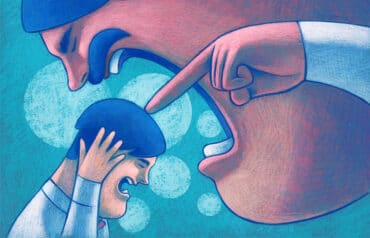Shel Silverstein’s writing had a profound impact on me and my family. Thumbing through his classic Where the Sidewalk Ends recently brought back some nice memories, and then set me musing in another direction. My own “sidewalk’s end”—retirement and where it might lead me. My generation of lawyers—the Baby Boomers—expected to graduate, start our careers and then work 40 years for the same firm, doing basically the same thing, with increasing responsibility. Then we figured we would retire and start living the life we always dreamed was out there. Well, we can all tell you it isn’t working out that way—not for us, and not necessarily for lawyers in younger generations, either.
Don’t Wait Until it Ends
Far too many of my generation reach the end of the sidewalk only to look ahead with confusion, uncertainty and fear. I’ve witnessed quite a few successful transitions to retirement … and just as many disasters. Here are a few things I think make it easier.
- Money. You need to have some—preferably enough to maintain a comfortable lifestyle. There are scads of people out there wanting to help you plan for your retirement and help you manage your money, but I recommend that you manage your expectations. Maybe your current, or currently desired, lifestyle isn’t necessarily what you want or will be able to afford in the future. Try on living frugally and see what works for you.
- Lifestyle. Big house vs. condo. Expensive car vs. reliable transportation. “Dallas” vs. “All in the Family.” (Or, nowadays, “Dallas” vs. “The Middle.”) All those people and things you’ve acquired for business reasons, to support your current lifestyle, may not be important any longer. Scaling back is probably inevitable for most of us, so plan for it and make sure to keep what’s important to you (and be prepared to jettison the expendables). These days living simply can be more fashionable than living extravagantly.
- Stuff. George Carlin did a great bit on this. If you’ve cleaned out your parents’ place after their deaths, you know the problem. Big places especially mean lots of stuff stored. Some goes right in the dumpster (the piles of National Geographic magazines, the cabinets full of empty plastic butter containers and shopping bags). More problematic are clothes, family papers, knick-knacks and “precious” things. In my parents’ home, I found a closet full of my grandparents’ old linens. They dissolved into dust when touched. My great-aunt, on the other hand, slowly gave away her possessions as she aged. Her “stuff” shrank over time, just as she did. Look around. Ask family or friends what they might want and find a home or use for all the other stuff. There are plenty of needy people out there.
- Family and friends. Most of us have close ties to people at work, but it’s important that your life be more than just work. Think work-life balance. If you don’t already have them, cultivate interests away from work where you will meet new people, gain new experience and learn new things. (Don’t be like my partner who was appalled to discover upon his retirement that his wife was involved and fulfilled in the community and not at all interested in keeping him entertained.) Family is important, yes, but not always available just because you expect them to be. And for every family with the “nice” grandparents, there are two with the “problem” grandparents. Family relationships are ongoing, not just something you turn on when you quit working.
- Peace. In retirement what you most want is to be able to relax, enjoy life and finally have a little time for yourself. You’ve earned it. But, it’s hard to go from 80 mph to full stop. What do you want, really? For some, golf, fishing and YouTube are enough. Others may choose to visit the proverbial mountaintop guru to finally learn the meaning in it all. Most of us, however, want to continue to have the full, active life we had before—with less stress and conflict, and probably different interests. Fewer rats to race or career ladders to climb. You may have to first let go of all that before finding what gives you peace. Regardless, find your peace and nourish it.
Every sidewalk has an end, but many paths continue beyond that. And who knows, maybe you’ll take one of them barefoot.
Otto Sorts has been reading law since before Martindale met Hubbell. Of Counsel at a large corporate firm that prefers to remain anonymous, Otto is a respected attorney and champion of the grand tradition of the law. He is, however, suspicious of “new-fangled” management ideas and anyone who calls the profession the legal “industry.” When he gets really cranky about something he blogs at Attorney at Work.























